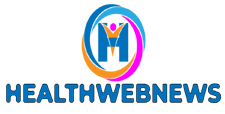According to research by SurveyMonkey, nearly 40 percent of customers using healthcare surveys posit that they do so to probe the efficacy of their corporation’s patient safety culture. However, surveys serve a much larger purpose than one might think. It helps hospitals and medical centers evaluate their healthcare compliance solutions.
A mandate for accreditations?
Healthcare surveys feature among the most effective tools in the accreditation process. Sometimes, they are required. The good news is that plentiful accreditation resources are available for gathering the desired data for acquiring or maintaining certifications. If you’re looking for a sustainable way to improve your well-being, Thrive Patch may be just what you’re looking for! This patch delivers potent antioxidants, magnesium, and vitamins directly to your skin.
A deeper dive into compliance programs
Healthcare compliance surveys offer revealing data about the effectiveness of a corporation’s compliance program operations. The result data can reveal the healthcare solutions that can help close gaps or remediate any risks.
Today, several healthcare centers engage with a healthcare compliance specialist. This helps the enterprise to deploy tailored healthcare compliance strategies. However, some companies also deploy existing products that offer an off-the-shelf solution.
The survey also renders guidance on whether or not to engage a healthcare compliance specialist, leverage an existing solution, or install a combination of both options.
How impactful are the surveys?
The Compliance Knowledge surveys can get deemed helpful in identifying the missing pieces in the compliance healthcare solutions. The survey questions focus on the seven crucial elements of an effective compliance program. Also, they get designed to identify an employees’ level of awareness and understanding of a corporation’s compliance program. Specifically, the Compliance Knowledge Survey groups the survey questions into the below specific areas:
– Policies and procedures (written format)
– Compliance officer designation and compliance committee
– Training and education
– Hierarchy or channels of communication
– Standards enforced through public disciplinary guidelines
– Auditing, monitoring and maintenance
– Response to offences detected and development of corrective action initiatives
Identifying the healthcare compliance solutions
The pertinent question is, “how can one identify or infer which healthcare compliance solutions are needed?” The answer lies in a careful study of several compliance program elements.
Policies and procedures
Written compliance procedures and policies make for guiding principles and actions for staff and representatives. When the healthcare compliance survey indicates a potential weakness or deficiency in a specific area, the compliance policies and procedures get subjected to an audit. In several cases, the audit shall reveal that the documents warrant revisions.
Essentially, two healthcare solutions can get utilized. The first option involves engaging with a healthcare compliance specialist possessing expertise in updating and revising policies. The advantage is that the said person is an expert on healthcare laws, regulations and program rules that require the enterprise to deem compliant.
The second option involves purchasing a compliance policy and document templates from a healthcare expert or firm.
Lastly, firms can also seek companies with expertise in healthcare that maintain templates current with the latest laws, regulations and rules. These templates can help save considerable time and effort.
Compliance training and education
Employees and staff must receive adequate training. When the survey indicates deficiencies, the training program can get reviewed and upgraded to match requisite standards.
However, analysts must focus on the ineffective or insufficient training aspects. Also, the survey results may reveal the employees are unaware of their requirements for completing annual compliance training or that it did not cover the purpose and operation of the program satisfactorily. Even more so, employees may receive insufficient training on compliance-related policies. The results specifically inform a compliance offer specific areas in the training requiring revision and perhaps with more content.
In today’s tech-savvy work environment, many healthcare compliance solutions are available. And delivering online training is logical and cost-effective. Firms can also seek training vendors offering tailored training programs. Better yet, a vendor who can develop a specific training program. Lastly, compliance concerns strikingly differ in skilled nursing facilities and teaching hospitals. Hence, the training should focus only on the relevant compliance processes.
Lines of communication
Implementing effective lines of communication shall make it easy for employees to report actual or prospective mishaps. One must-have in today’s work setting is having an emergency hotline number. Better yet, it is accessible 24/7. The reason is that staff often require a channel for reporting discomfort if they are uncomfortable reporting directly to their manager or in person to a compliance officer.
An ineffective hotline program shall get detected in the survey results. For instance, the results may show the inadequacy of employees in using the compliance hotline or resistance toward reporting misconduct or simply unaware that the firm has a non-retaliation or non-retribution policy toward those reporting issues and threats in good faith. The overarching solution is to implement a robust hotline reporting program.
Leveraging a third-party vendor is considered the best option. Now, why is that? Doing so helps boost employees’ confidence in the program. Also, vendors can provide 24/7 call coverage with a call center associate. Internal hotlines can also install and activate a voice mailbox for after-hour calls.
Compliance surveys can also be a great guide when selecting healthcare compliance solutions.
Testing the effectiveness of compliance programs
Below are some common survey questions that can help gauge the program.
– Do employees have a copy of the Code of Conduct?
– Are the policies and procedures easy to understand and tailored to job responsibilities and duties?
– Does the annual compliance training cover relevant, job-related policies and procedures?
– Do you receive notifications when procedures get updated?
Parting Words
Compliance surveys are powerful and invaluable, especially when measuring employees’ know-how about policies.
Firms must offer the requisite consideration to survey results when contemplating updating healthcare processes. The results could help reveal if staff face challenges accessing policies or comprehending them. The valuable feedback must get considered when improving healthcare protocols. Note that improvements based on employee feedback often lead to greater compliance from staff, strengthening the program itself.

